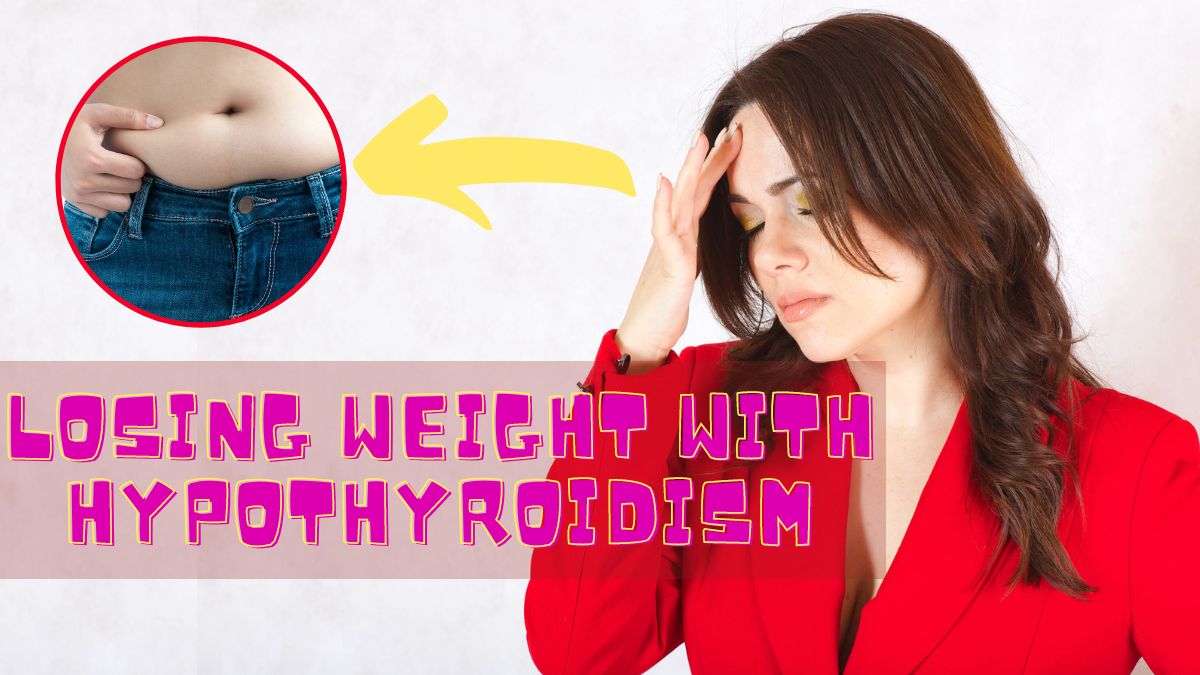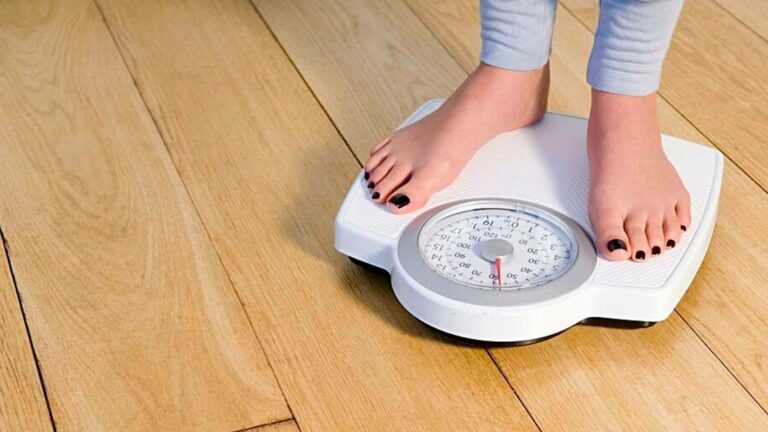Losing Weight With Hypothyroidism – Things To Know!

Losing weight with hypothyroidism is not easy, and it can be even harder if you don’t know what to do. If you’re overweight and have hypothyroidism, you may wonder how to start losing weight without harming your thyroid function.
In this article, we’ll talk about what weight loss is good for hypothyroidism, how to lose weight safely with hypothyroidism, and how to maintain your ideal body weight once you’ve achieved it.
What Is Hypothyroidism
Hypothyroidism is a disease in which the thyroid gland does not produce enough hormones. The thyroid gland is located in the front of the neck and produces two hormones, triiodothyronine (T3) and thyroxine (T4). T3 and T4 travel through the bloodstream to all body parts.

If you have hypothyroidism, your body doesn’t make enough T3 or T4. This causes a slowing down of your metabolism (the rate at which your body uses energy). It can also lead to other problems such as weight gain, muscle weakness, joint pain, and fatigue.
What Are Some Tips For Losing Weight With Hypothyroidism?
If you have hypothyroidism, you may notice that losing weight is harder than it is for others. But there are some things you can do to make losing weight easier.
Here are some tips to help you lose weight with hypothyroidism:
1. Eat small, frequent meals to keep your blood sugar levels stable. Eating a few large meals may trigger hypoglycemia (low blood sugar) in people with hypothyroidism.
2. Avoid simple carbohydrates like white bread, pasta, and rice, which can cause spikes in blood sugar levels and make you feel hungry again soon after eating. Instead, choose complex carbohydrates such as whole grains (brown rice, oats), vegetables, and fruits for most of your meals.
3. Choose foods rich in fiber such as beans, nuts, seeds, and whole grains, to help slow digestion so that you feel full longer after eating smaller portions.
4. Drink plenty of water throughout the day to help prevent constipation caused by low thyroid hormone levels. If your symptoms include constipation or dry skin, talk with your doctor about taking a stool softener or laxative until your symptoms improve.
5. Exercise regularly to help burn calories and keep your weight under control. A moderate amount of exercise, such as 30 minutes of daily walking, is usually enough.
6. Avoid smoking, which can increase your risk for heart disease and other health conditions.
7. Take a multivitamin daily to give your body the nutrients it needs to function properly.
8. Consider taking thyroid supplements if you have trouble losing weight or experience symptoms like fatigue, hair loss, or difficulty concentrating. Talk with your doctor about the best supplement for you and whether it’s safe to take while pregnant or breastfeeding.
9. Make sure your bedtime routine is regular and relaxing so that you feel sleepy after dinner and don’t reach for the snacks in the pantry late at night.
Remember that weight loss is a gradual process, and you shouldn’t be too discouraged if you don’t achieve rapid results immediately. With time, you can usually lose weight at a healthy pace if you are consistent with your diet and exercise habits.

What Are Some Common Misconceptions About Hypothyroidism And Weight Loss?
One of the most common misconceptions about hypothyroidism and weight loss is that it makes you gain weight or causes you to gain weight. This isn’t true. Some people with hypothyroidism lose weight because their metabolism slows down due to too little thyroid hormone in their bodies.
Another misconception is that if you have hypothyroidism, you should take more iodine or eat more iodine-containing foods because they’ll help make up for any deficiency in iodine caused by your low levels of thyroid hormone. But there’s no evidence that this will help your symptoms or improve them.
In addition, people often think that taking synthetic thyroid hormone replacement medication can help them lose weight or keep them from gaining weight when they start taking it after being diagnosed with hypothyroidism.
Synthetic forms of thyroid hormone can help control some symptoms. Still, they won’t help you lose weight or prevent additional weight gain if you’re already overweight or obese when starting treatment for hypothyroidism. The opposite may be true. Synthetic thyroid hormone is more likely to cause weight gain than the natural form of thyroid hormone made by your body.
What Are Some Ways To Treat Hypothyroidism And Lose Weight?
Some of the most common symptoms are fatigue, weight gain, constipation, and depression. Hypothyroidism can also cause muscle pain and weakness.
If you have any of these symptoms, it’s important to see your doctor.
The most common way to treat hypothyroidism is with hormone replacement therapy (HRT). HRT replaces the hormones your body isn’t producing on its own. It’s usually given in pill form but can also be injected or taken as a nasal spray or skin patch.
There are many different types of HRT, including synthetic T4-only drugs like levothyroxine (Synthroid) and natural desiccated animal thyroid (NDAT) drugs like Armour Thyroid. Some people need a combination of synthetic T4 plus synthetic T3; this combination is called a “bioidentical” hormone replacement therapy because it mimics how your body would make thyroid hormones naturally.
Can Hypothyroidism Be Cured Entirely?
Hypothyroidism can be cured entirely. If you have hypothyroidism, your doctor will prescribe replacement hormones. This may come in synthetic T4 (levothyroxine) or natural T3/T4 combinations, such as Armour or Nature thyroid.
Replacement hormones can completely reverse all symptoms of hypothyroidism, but they must be taken for life. You should take your medicine exactly as your doctor prescribes and never stop taking it unless you have discussed it with them first.
If you are pregnant or breastfeeding, it is particularly important that you take your medication exactly as directed by your physician because some thyroid medications pass into breast milk and could adversely affect a nursing infant.
Final Words
Hypothyroidism weight loss will depend on many factors, such as the severity of your hypothyroidism, how much it affects your metabolism, your diet, and physical activity, among others. However, managing weight with hypothyroidism is possible. If you have an underactive thyroid gland then congratulations! You have an easy way to lose weight!





